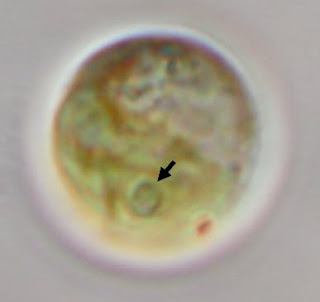Wednesday, March 30, 2011
Possible loss of website
There is a possibility of the Plant Sciences website (http://www.plantsci.cam.ac.uk/) going down this weekend as power on the Downing Site is interrupted
Beverley Glover awarded the William Bate Hardy Prize
The Council of the Cambridge Philosophical Society unanimously agreed with its nominating committee that Dr Beverley Glover, jointly with Dr Peter Forster, should be awarded the William Bate Hardy Prize for 2010.
The Prize is founded in memory of Sir William Bate Hardy (1864-1934) who was a Fellow of the Cambridge Philosophical Society. It is awarded once in three years “for the best original memoir, investigation or discovery by a member of the University of Cambridge in connection with Biological Science that may have been published during the three years immediately preceding”.
Since the awards began in 1965, five of the twenty-two previous prize winners have gone on to win Nobel Prizes in either chemistry or physiology and medicine.
The Prize is founded in memory of Sir William Bate Hardy (1864-1934) who was a Fellow of the Cambridge Philosophical Society. It is awarded once in three years “for the best original memoir, investigation or discovery by a member of the University of Cambridge in connection with Biological Science that may have been published during the three years immediately preceding”.
Since the awards began in 1965, five of the twenty-two previous prize winners have gone on to win Nobel Prizes in either chemistry or physiology and medicine.
Tuesday, March 29, 2011
Cambridge Scientists win major component of $4 Million joint funding initiative

Cambridge Scientists win major component of $4 Million joint funding initiative funded jointly by BBSRC (UK) and NSF (US)
Plants really matter, and for the next generation, plant and microbial productivity will become the focus of key global issues: the basis for feeding an additional 2-3 billion mouths, to drive forward an economy currently trading on past sunlight, and maintain biodiversity in the face of climate change. The enzymatic powerhouse at the heart of these processes takes carbon dioxide from the atmosphere and uses light energy to produce sugars and other building blocks of life. This enzyme, called Rubisco, is rather flawed and somewhat promiscuous: it engages with oxygen as well as carbon dioxide, to the detriment of potential plant productivity. Some plants have evolved mechanisms, which act like biological turbochargers, to concentrate CO2 around Rubisco and improve the enzyme’s operating efficiency. These carbon concentrating mechanisms have evolved in certain key crops, such as sugar cane and maize. Other plants, such as aquatic algae, have developed mechanism in parallel which actively concentrate bicarbonate as a source of CO2 for Rubisco.
An $8 million collaborative funding opportunity was recently offered by the UK BBSRC and the US NSF, with the challenge of surpassing these known pathways of carbon fixation, and maximising plant yield for the future. Selected scientists were pitched together to develop international consortia to develop novel ideas, prompted and guided by a scientific mentors and administrators. Four proposals were invited to be taken forward for development and funding, two of which involve scientists in the Department of Plant Sciences at the University of Cambridge. The Ideas Lab experience was likened by Prof Griffiths to be a combination of Big Brother, The Weakest Link and The Apprentice! Prof. Griffiths is the consortium leader for one of the joint proposals funded, which will be exploring the operation of an algal carbon concentrating mechanism, and the possibility for introducing components into higher plant cells. Dr Julian Hibberd is part of another consortium also supported by the BBSRC/NSF initiative, seeking to increase the efficiency of light harvesting by broadening the wavelengths of light, as used by bacteria, to power biophysical transport processes in higher plants.
This research support will consolidate a major Plant Sciences initiative at Cambridge, which is exploring the means to improve photosynthesis from the perspective of sustainable plant productivity and crop yields for the future. Additional work is also being undertaken by Dr Hibberd, investigating the potential introduction of C4 photosynthetic traits into crops such as rice. This programme is part of a broader sweep of strategic research relevant to sustainable crop development, involving RNAi, pathogen suppression and epidemiological controls to maintain yields in a changing climate.
Labels:
announcement,
Griffiths,
Hibberd
Subscribe to:
Posts (Atom)


